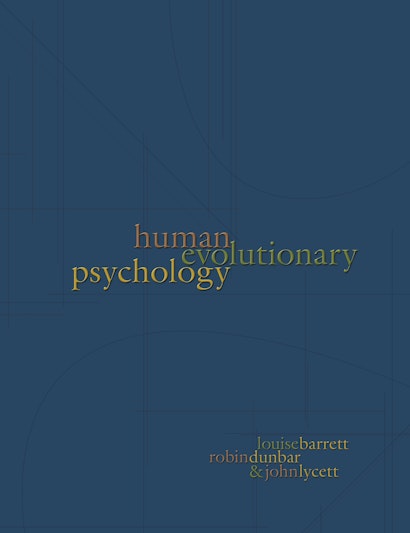Human Evolutionary Psychology


Paperback
- Price:
- $99.95
- ISBN:
- Published:
- Feb 17, 2002
- Copyright:
- 2002
- Pages:
- 448
- Size:
- 6 x 9.25 in.
- 75 line illus.
- Main_subject:
- Biology
- For sale only in the United States, US Dependencies, and Canada
- Request Exam Copy
Why do people resort to plastic surgery to look young? Why are stepchildren at greatest risk of fatal abuse? Why do we prefer gossip to algebra? Why must Dogon wives live alone in a dark hut for five days a month? Why are young children good at learning language but not sharing? Over the past decade, psychologists and behavioral ecologists have been finding answers to such seemingly unrelated questions by applying an evolutionary perspective to the study of human behavior and psychology. Human Evolutionary Psychology is a comprehensive, balanced, and readable introduction to this burgeoning field. It combines a sophisticated understanding of the basics of evolutionary theory with a solid grasp of empirical case studies.
Covering not only such traditional subjects as kin selection and mate choice, this text also examines more complex understandings of marriage practices and inheritance rules and the way in which individual action influences the structure of societies and aspects of cultural evolution. It critically assesses the value of evolutionary explanations to humans in both modern Western society and traditional preindustrial societies. And it fairly presents debates within the field, identifying areas of compatibility among sometimes competing approaches.
Combining a broad scope with the more in-depth knowledge and sophisticated understanding needed to approach the primary literature, this text is the ideal introduction to the exciting and rapidly expanding study of human evolutionary psychology.
